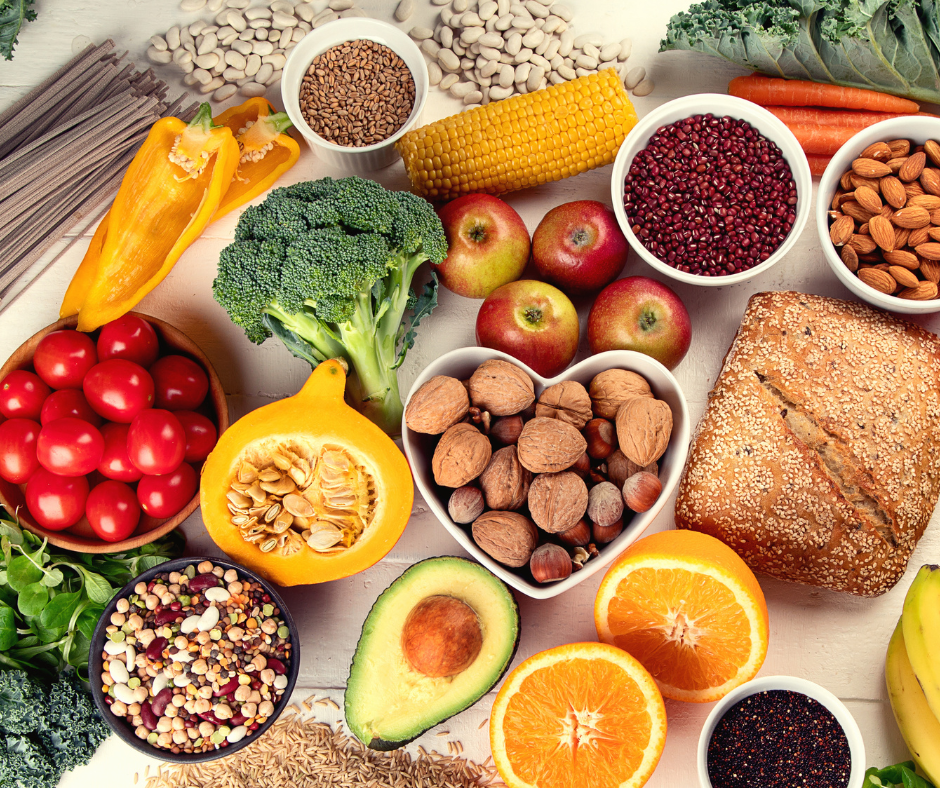In recent years, the term “superfoods” has become a buzzword in the health and wellness industry. From kale smoothies to chia seed puddings, superfoods promise to revolutionize your diet and transform your health. But do these foods live up to the hype, or is it just clever marketing? Let’s dive deep into the world of superfoods, separating fact from fiction and discovering actionable steps to enhance your nutrition.
What Are Superfoods?
Superfoods are nutrient-dense foods that are believed to provide exceptional health benefits due to their high levels of vitamins, minerals, antioxidants, and other essential compounds. While there’s no official definition of a superfood, common examples include:
- Blueberries: Rich in antioxidants and known to improve brain health.
- Quinoa: A complete protein that supports muscle and tissue repair.
- Avocados: High in healthy fats that benefit heart health.
- Turmeric: Contains curcumin, which has anti-inflammatory properties.
But here’s the catch: while these foods are indeed nutritious, they aren’t magical cures. Eating superfoods alone won’t counteract an otherwise unhealthy diet.
The Science Behind Superfoods
Research supports the health benefits of many superfoods, but the term can be misleading. For example:
- Antioxidants: Found in berries, they combat free radicals in the body, reducing oxidative stress and lowering the risk of chronic diseases.
- Omega-3 Fatty Acids: Present in salmon, walnuts, and flaxseeds, they support brain health and reduce inflammation.
- Fiber: Found in chia seeds and quinoa, it promotes gut health and regulates blood sugar levels.
While these foods are beneficial, scientists agree that no single food can provide all the nutrients your body needs. A balanced and diverse diet is key.
The Marketing Hype
Superfoods are often marketed as miracle solutions to complex health issues. Fancy packaging and lofty claims can sometimes overshadow the fact that many superfoods are already staples in traditional diets worldwide. For instance:
- Turmeric: A cornerstone of South Asian cuisine.
- Goji Berries: Used in traditional Chinese medicine for centuries.
- Leafy Greens: Spinach and kale are common ingredients in many global dishes.
Instead of chasing the latest “superfood,” consider focusing on affordable, locally sourced options that offer similar benefits.
Actionable Steps to Incorporate Superfoods
- Start Small:
Don’t overhaul your entire diet overnight. Begin by adding a handful of spinach to your morning smoothie or swapping white rice with quinoa. - Mix and Match:
Combine superfoods for maximum impact. A bowl of oatmeal topped with chia seeds, blueberries, and a drizzle of honey packs a powerful punch of nutrients. - Prioritize Freshness:
Fresh, seasonal produce is often more nutrient-dense than imported, pre-packaged options. - Balance Your Diet:
Incorporate a variety of whole foods—grains, vegetables, fruits, lean proteins, and healthy fats. Superfoods should complement, not replace, your overall eating plan. - Be Mindful of Portion Sizes:
Overeating superfoods won’t double their benefits. For example, avocados are calorie-dense and should be consumed in moderation. - DIY Superfood Recipes:
- Turmeric Latte: Mix turmeric, black pepper, and almond milk for a cozy anti-inflammatory drink.
- Chia Pudding: Soak chia seeds in almond milk overnight and top with fresh fruit for a healthy breakfast.
A Word of Caution
While superfoods are packed with nutrients, they aren’t a cure-all. Some individuals may experience allergies or digestive discomfort from certain foods. Always consult a healthcare professional before making drastic changes to your diet, especially if you have existing health conditions.
The Verdict: Do Superfoods Really Exist?
Yes—and no. Superfoods are real in the sense that they are highly nutritious and offer impressive health benefits. However, the idea that they are miracle foods capable of solving all your health problems is a myth. Good health stems from a combination of balanced eating, regular exercise, and a mindful lifestyle.
Final Thoughts
Superfoods can be a valuable addition to your diet, but they’re just one piece of the puzzle. Instead of chasing trends, focus on building sustainable habits that prioritize variety, balance, and moderation. Remember, the real “superpower” lies in your daily choices.
Take charge of your health today by embracing the benefits of superfoods while maintaining a holistic approach to nutrition. Let this blog be your guide to a healthier, happier you.




